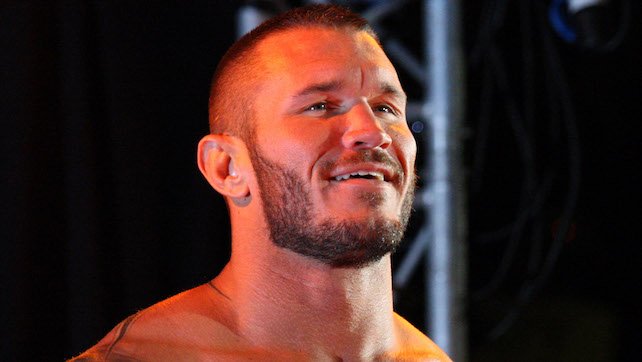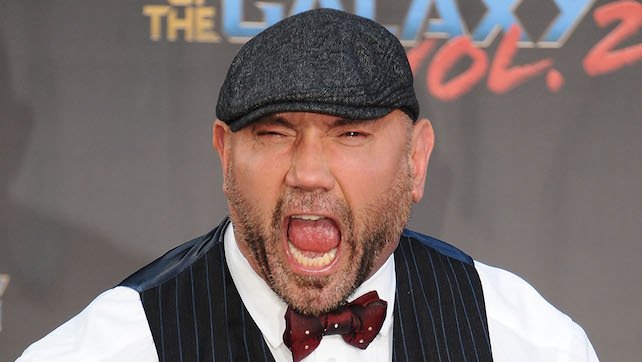
In the first part of the OVW 4, we looked at Brock Lesnar’s arrival and the impact that he had in WWE. This edition, we’ll be looking at two other superstars who would play a big role in each other’s careers and also a big role in WWE. Batista and Randy Orton entered OVW in two very different stages of their life.
Orton was just 21 years old when he signed a developmental contract. Batista, on the other hand, joined aged 31. That’s quite late to get a start in the game, but if Diamond Dallas Page proved anything in his run, it’s that it’s never too late. And Batista would arguably create an even greater legacy.
Let’s take a look at how they went from prospect to main eventers
Related: The OVW 4: A Batch That Changed The Landscape Of WWE (Part One)
Randy Orton
The son of Bob Orton Jr., Randy Orton was a big-time prospect when he signed a contract in 2001. He was just 21 years old at the time, and his experience was restricted to whatever his father taught him. He would make waves in OVW, living up to his potential. He would win the OVW Hardcore Championship on two occasions, and he ended up crossing paths with The Prototype, today more famously known as John Cena.
Little did he know that they would end up having wars on a much bigger stage in the future. His farewell OVW match would be against none other than Cena, who beat him on the way out. Randy Orton’s early main roster career saw him get a start on SmackDown before joining Evolution.
His near-two-year run with Evolution would be one that took him to a whole new level, as he was clearly being primed to be the face of the company in the future. There was only one issue – even when Evolution did turn on him and he was a hot babyface, he really struggled to get over as one. Being a heel was always his forté, and it would be soon after that WWE capitalized on that. Their faith in him had never died down, and he was put in a high-profile WrestleMania match against The Undertaker at 2005, one which he lost.
His career would take all sorts of twists and turns over the years, with 2004 seeing him becoming the youngest World Champion in WWE history, and 2007 onwards being where he started racking up the World titles. Over the years, he would find himself becoming a staple of WWE, and though many feel he never lived up to his full potential, his longevity and resumé speaks for itself. 13 World Championships, two Royal Rumble wins, two WrestleMania main events, a Grand Slam Champion and more, Orton is a surefire Hall of Famer, and a legend who will be appreciated a lot more when he’s done.
Batista
Batista didn’t know too much about pro wrestling when he signed in 2000. He had the physique and just decided to give it a try. His look certainly helped him go a long way, but Batista, named Leviathan in OVW, would work his tail off to make it big. He even had a clash against Kane that involved ‘Stone Cold’ Steve Austin, where the legend defeated him.
He would win the OVW Championship before dropping it to The Prototype, i.e, John Cena. Not long after, the main roster came calling. He had a rough start, debuting as Deacon Batista, the enforcer of Reverend D’Von. It wasn’t long before the gimmick was scrapped, because WWE had big plans for him in Evolution.
While Randy Orton’s intended big babyface turn didn’t work, Batista would reach a whole new level with Evolution, winning the tag team titles alongside Ric Flair. After his time in Evolution came to a close, he would be the one to make the faction implode, after he turned on Triple H in what is easily one of the greatest babyface turns in history.
After defeating Triple H in the main event of WrestleMania 21, Batista would go on a tear as World Heavyweight Champion, eventually becoming the face of SmackDown. Over the next few years, Batista would be a mainstay and easily the second biggest star in the company, only behind John Cena.
Even so, he had a very parallel rise with Cena, but WWE chose to make the latter the face of the company. That didn’t stop Batista’s success, however, as he would constantly be a main event player throughout his time there. Although he left in 2010, he did come back a few years later and main event WrestleMania, though things were a lot different then.
He would eventually have a successful Hollywood career, but his impact cannot be understated. With six world championships, two Royal Rumble wins, two WrestleMania main events and more, Batista cemented a legacy for himself as an all-time great, and he was one of the defining superstars of the Ruthless Aggression Era.





